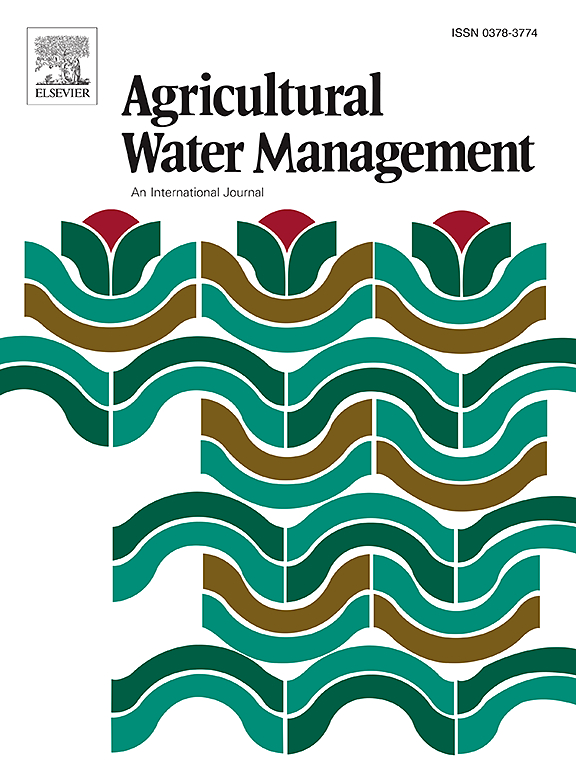Irrigation but not fertilization increases yields and N2 fixation in organic faba bean in temperate climates
IF 5.9
1区 农林科学
Q1 AGRONOMY
引用次数: 0
Abstract
Understanding how to optimize water and nutrient management is crucial for improving crop productivity in organic farming systems. In this study, we examined the effects of irrigation and fertilization on yield and nitrogen fixation in organically managed faba bean crops in temperate climates in six field trials covering three sites and two years. Irrigated plots showed a 54 % yield increase and higher nitrogen fixation (up to 105 %), while fertilization with rock phosphate and potassium sulfate, with or without micronutrients, had no significant impact. Irrigation induced higher yields as well as a significant increase in pod number, grain count, and chlorophyll content of leaves, suggesting improved photosynthesis, flowering and pod filling. Despite low soil nutrient levels for P, Mo and B, mineral fertilization showed no effect on faba bean yields and nitrogen fixation, likely due to long-term organic fertilization with cattle manure. Our results also indicate that irrigation enhances farmgate nitrogen balance by increasing nitrogen fixation without depleting soil nitrogen reserves. These findings suggest that water, rather than nutrient supply, is essential for maintaining productivity and nitrogen fixation in organic faba bean cultivation also in temperate regions. Economically, however, irrigation proved cost-effective in only one of six trials, suggesting that irrigation rates need to be optimized.
在温带气候条件下,灌溉可提高有机蚕豆的产量和固氮能力
了解如何优化水和养分管理对于提高有机农业系统的作物生产力至关重要。本研究通过为期2年、3个地点的6个大田试验,研究了在温带气候条件下,灌溉和施肥对有机管理蚕豆作物产量和固氮的影响。灌溉地块的产量提高了54. %,固氮率提高了105. %,而施用磷矿粉和硫酸钾,无论是否添加微量元素,对产量的影响都不显著。灌溉提高了水稻产量,显著增加了水稻的荚果数、粒数和叶片叶绿素含量,表明灌溉改善了水稻的光合作用、开花和结荚。尽管土壤磷、钼和硼的养分水平较低,但施用矿肥对蚕豆产量和固氮没有影响,这可能是由于长期施用牛粪有机肥所致。我们的研究结果还表明,灌溉通过增加固氮而不消耗土壤氮储量来改善农田氮平衡。这些发现表明,在温带地区的有机蚕豆种植中,维持生产力和固氮所必需的是水分,而不是养分供应。然而,从经济上讲,灌溉在六次试验中只有一次证明具有成本效益,这表明需要优化灌溉率。
本文章由计算机程序翻译,如有差异,请以英文原文为准。
求助全文
约1分钟内获得全文
求助全文
来源期刊

Agricultural Water Management
农林科学-农艺学
CiteScore
12.10
自引率
14.90%
发文量
648
审稿时长
4.9 months
期刊介绍:
Agricultural Water Management publishes papers of international significance relating to the science, economics, and policy of agricultural water management. In all cases, manuscripts must address implications and provide insight regarding agricultural water management.
 求助内容:
求助内容: 应助结果提醒方式:
应助结果提醒方式:


